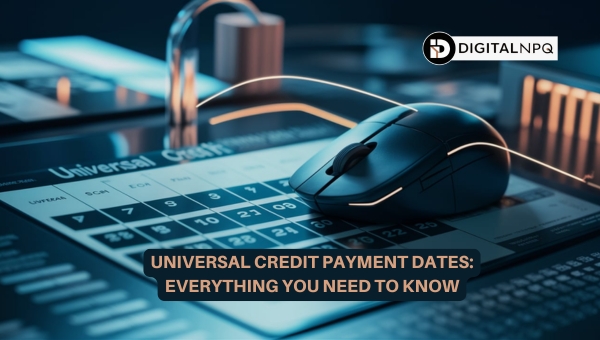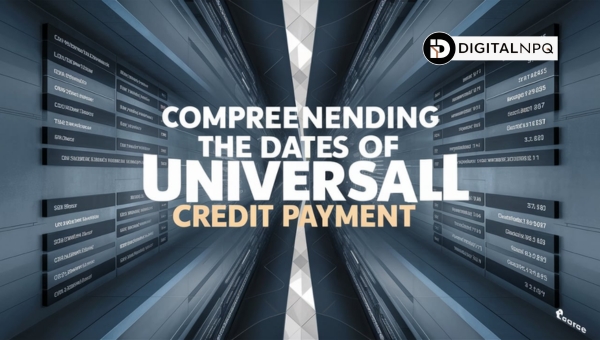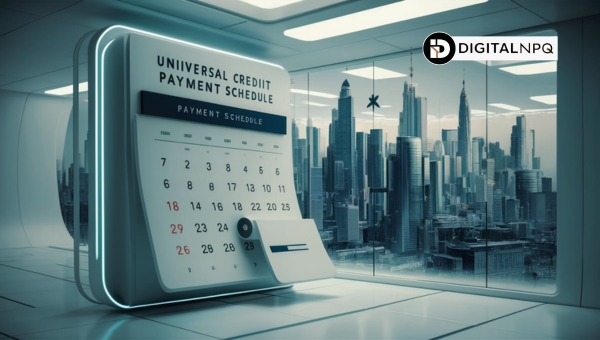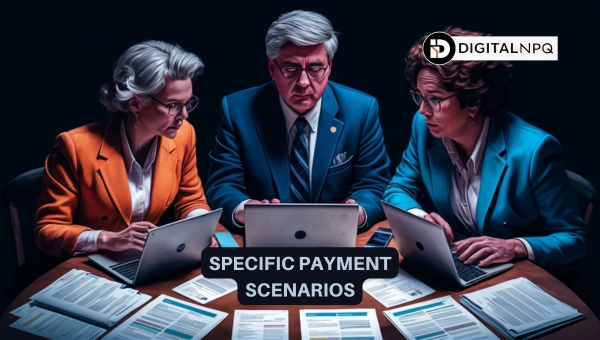Universal Credit Payment: Unlock Maximum Benefits Today!

The world of Universal Credit Payment can be tricky, especially when it comes to understanding payment dates. In this article, we’ll dive into everything you need to know about universal credit payment dates. From understanding monthly assessment periods to how the August holidays might affect your payments, we’ve got you covered.
We’ll also explore specific scenarios like living in Scotland or with a partner, and guide you through backdating and advance payments. If managing your payments feels daunting, we’ll discuss alternative methods and solutions for common issues. Read on to unlock all the essential details!
Comprehending the Dates of Universal Credit Payment
The world of Universal Credit payment can feel overwhelming, especially when it comes to understanding payment dates. Knowing when you’ll receive your payments is crucial for budgeting and financial planning. Let’s break it down to make it easier.

- Initial Payment Date: After your initial claim, there is a waiting period of around 5 weeks before you receive your first payment. This period includes a one-month assessment period and up to seven days for processing.
- Monthly Payments: Once you receive your initial payment, subsequent payments follow a monthly schedule. Each payment is made on the same date every month, usually the date you received your first payment. If this date falls on a weekend or bank holiday, the payment is made on the last working day before that date.
- Assessment Periods: Your monthly payment is based on an assessment period that starts on the date you made your claim and runs for one calendar month. This period determines your income and circumstances, affecting your payment amount.
- Changes and Updates: It’s important to keep your information up-to-date. Changes in circumstances, such as a change in income or household composition, can affect your payment date and amount.
Understanding these points will help you manage your finances more effectively while receiving Universal Credit.
Also Read: $1800 Social Security Payment: What You Need to Know?
Universal Credit Payment Schedule
Understanding the Universal Credit payment schedule is essential for managing your finances effectively. It helps to know when and how payments are processed. Let’s explore some key aspects of this schedule, especially focusing on the monthly assessment periods and how the August holidays might impact your payments.

Monthly Assessment Periods
The monthly assessment period is crucial to understanding your Universal Credit payments. Here’s how it works:
- Initial Payment: Once you apply for Universal Credit, your first payment usually arrives about five weeks later. This includes a one-month assessment period and up to seven days for processing.
- Ongoing Payments: After the initial payment, you will receive payments monthly. Each monthly period starts on the date you made your claim and ends a month later.
- Assessment: During this period, your income and circumstances are evaluated to determine your payment amount. Changes in your situation, like employment or housing, can affect the amount you receive.
Changes During the August Holidays
August holidays can impact your Universal Credit payments. Here’s what you need to know:
- Bank Holidays: Payments scheduled on bank holidays in August might be processed earlier. This ensures you receive your funds without delay.
- Notification: It’s important to stay informed about any changes. The Department for Work and Pensions (DWP) typically sends notifications if there are adjustments to payment dates.
- Planning: Be sure to plan your finances accordingly, especially if you rely on your payment for essential expenses. Adjusting your budget can help manage any early or delayed payments.
Understanding these elements of the Universal Credit payment schedule can help you navigate your finances with more confidence and less stress.
Also Read: How Many Work Days in a Year: A Complete Guide
Specific Payment Scenarios
Universal Credit payment can be tricky, especially when specific circumstances come into play. Understanding how different living situations can affect your payments is crucial. Let’s delve into some particular scenarios to help you stay informed.

If You Live in Scotland
Living in Scotland may come with unique variations in Universal Credit payment schedules. Here are a few key points to consider:
- Different Payment Options: In Scotland, you can choose to receive payments twice a month instead of monthly. This can help with budgeting and managing finances more effectively.
- Direct Rent Payments: You have the option to have your rent paid directly to your landlord, which can simplify managing housing costs.
- Local Holidays Impact: Scottish bank holidays might affect the timing of your payments. Make sure to check the schedule around holidays to avoid surprises.
If You Live with a Partner
Living with a partner can impact how your Universal Credit is calculated and paid. Here’s what you need to know:
- Joint Claims: If you live with a partner, you must make a joint claim for Universal Credit. This means your income and savings will be combined to determine your payment amount.
- Payment Distribution: The payment is typically made to one bank account, but you can request to split the payment between you and your partner.
- Impact on Amount: Living with a partner may change the total amount you receive because both incomes are considered. This could either increase or decrease your Universal Credit award.
By understanding these specific payment scenarios, you can better navigate the complexities of Universal Credit and ensure you receive the payments you’re entitled to.
Backdating and Advance Payments
The world of Universal Credit can be challenging, especially when it comes to understanding backdating and advance payments. These options can be crucial for individuals needing financial support promptly.
Applying for Backdating
If you believe you were eligible for Universal Credit before your application date, you may apply for backdating. Here are the steps to follow:
- Eligibility Check: Ensure you meet specific criteria, such as having a valid reason for the delay in your application.
- Submit a Request: Contact Universal Credit either online or by phone to request backdating.
- Provide Evidence: You may need to provide supporting documents to justify your request, like medical records or proof of job loss.
- Wait for a Decision: The decision will be communicated to you, usually within a few weeks.
Requesting an Advance Payment
Sometimes, waiting for your first Universal Credit payment can be tough. In such cases, you can request an advance payment. Here’s how:
- Eligibility: You need to be in urgent financial need and unable to wait for your first payment.
- Application: Apply online through your Universal Credit account or call the helpline.
- Assessment: Your financial situation will be assessed to determine the advance amount.
- Repayment: The advance will be repaid in installments from your future Universal Credit payments.
These steps can help ensure that you receive the financial support you need when you need it most.
Also Read: Social Security News: Updates and Key Changes
Managing Your Payments
Managing your Universal Credit payments effectively is crucial to ensure financial stability. Whether you lack a bank account, share finances with a partner, or encounter payment issues, understanding your options can help you navigate these challenges.
If You Don’t Have a Bank Account
If you don’t have a bank account, there are still ways to receive your Universal Credit:
- Post Office Card Account: You can have your payments sent to a Post Office card account, which allows you to withdraw cash at Post Office branches.
- Credit Union Account: Some credit unions offer accounts specifically designed for receiving benefits.
- Alternative Payment Arrangements: In certain situations, you might be eligible for alternative payment arrangements such as having your rent paid directly to your landlord.
Splitting Payments with a Partner
Living with a partner can affect how your Universal Credit is paid. Here are some options for splitting payments:
- Joint Claim: You and your partner can make a joint claim, where both incomes are considered, and payments are split between you.
- Individual Bank Accounts: You can choose to have the payments split and sent to individual bank accounts.
- Managed Payments: In certain circumstances, payments can be managed to ensure bills and essential costs are covered first.
Payment Issues and Solutions
Sometimes, issues with payments can arise. Here are some common problems and solutions:
- Late Payments: If your payment is late, contact the Universal Credit helpline to report the issue.
- Incorrect Amounts: If you believe you have been paid the wrong amount, double-check your online account and report any discrepancies.
- Change in Circumstances: Ensure you update your account with any changes in your circumstances to avoid payment delays or incorrect amounts.
Understanding these aspects of managing your payments can make a significant difference in maintaining your financial well-being.
FAQs
What date is Pip paid?
Personal Independence Payment (PIP) is usually paid every four weeks. The exact date can vary, so it’s best to check your award letter for specific details.
Can I get my UC payment early?
You may be able to get your Universal Credit payment early in certain situations, such as during holiday periods. Contact your work coach or the Universal Credit helpline to discuss your circumstances.
What freebies can you get with PIP?
With PIP, you might be eligible for several benefits, including free bus passes, reduced council tax, and discounted or free prescriptions. Check with your local authority for a comprehensive list.
Conclusion
Understanding Universal Credit payment dates is crucial for managing your finances effectively. By knowing the schedule and potential changes, you can plan better and avoid any financial hiccups. Whether you live in Scotland, share finances with a partner, or need to explore alternative payment methods, being informed helps you navigate the system smoothly.
Additionally, knowing how to request backdated or advance payments can provide much-needed relief in tough times. If you found this guide helpful, be sure to check out more of our informative articles. Stay informed and empowered with our latest updates!
